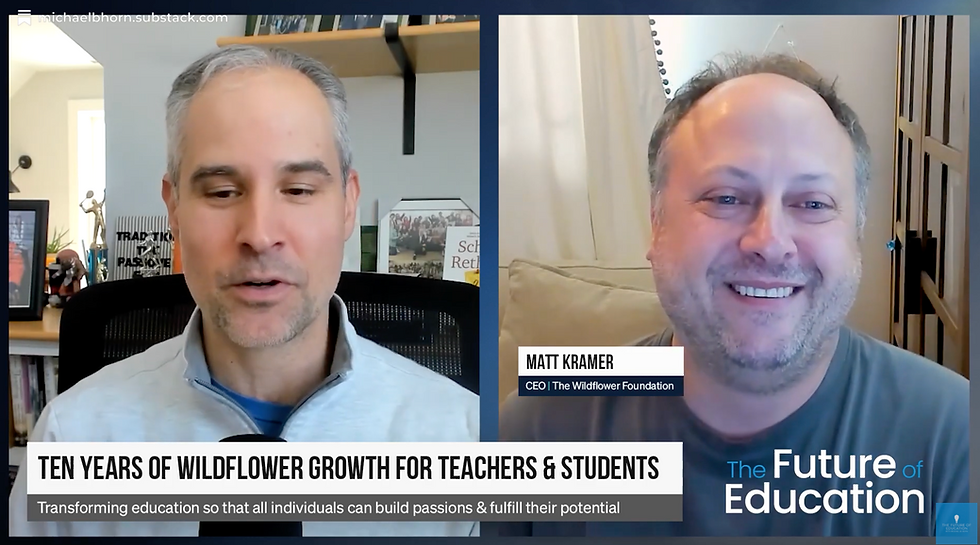Building Sustainable Schools: Financial Literacy PD for Wildflower Teacher Leaders
- Wildflower Schools

- Apr 24, 2025
- 2 min read
Updated: May 20, 2025

Starting and sustaining a school is no small feat — especially when you're not just leading a classroom, but leading an entire school community. For Teacher Leaders in the Wildflower network, one of the most powerful forms of support comes through our ongoing professional development. These sessions help leaders navigate the complex realities of starting a school and connect with peers at every stage of the journey. They’re also part of our larger effort to answer key questions we hear again and again: How do I start a school? How do I sustain a micro-school? What kind of support do I need to build a thriving, financially sound learning environment?
In March and April, Isabelle Bibbler, from the School Supports team, led a powerful multi-part series on financial literacy for Teacher Leaders. This PD series was designed to demystify school finance, turning it from something intimidating into something empowering. For many Teacher Leaders launching or running their own schools, financial systems can feel overwhelming — this series reframed them as essential tools for sustainable leadership.
Accounting as a Leadership Tool
The series began with accounting basics. Isabelle broke down the fundamentals and showed how tools like QuickBooks can be tailored to work for schools at any stage. Topics included how to clearly track restricted vs. unrestricted funds and the importance of monthly reconciliations. These practices aren’t just “back office” work; they’re foundational to running a school with transparency and confidence.
Reporting: Telling Your School’s Financial Story
Next, the focus shifted to financial reporting — not just as a compliance requirement, but as a powerful way to communicate with your board and broader community. Isabelle highlighted how effective reporting can build trust and invite support, especially from your board. Participants explored how to present key financial information in ways that are accessible and actionable for board members, and how to use these reports to foster accountability and shared decision-making. The session also emphasized practical strategies for segregating financial duties across roles — a crucial step to reduce errors, prevent fraud, and support strong internal controls.
Budgeting as a Reflection of Values
The final part of the series focused on budgeting — not just for the upcoming year, but as a tool to guide long-term vision. Isabelle encouraged participants to root budgets on real past spending (actuals), align them with their school’s values, and treat budgeting as a dynamic, ongoing leadership activity. A well-constructed budget helps clarify priorities, improve decision-making, and support communication with stakeholders.
Financial Literacy as a Shared Responsibility
Throughout the series, one message came through clearly: Teacher Leaders don’t need to be financial experts to lead financially sustainable schools. With the right tools, mindset, and support — from boards, accountants, and the Wildflower network — financial literacy becomes a shared strength across the school team.
By grounding schools in sound financial practices, Teacher Leaders create the foundation for long-term success — not just for their own programs, but for the communities they serve. Ready to grow your leadership and shape the future of education? Get involved with Wildflower Schools.



